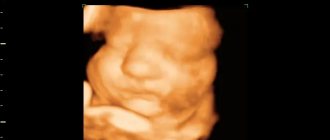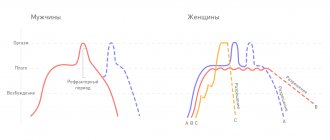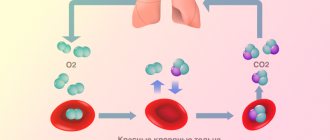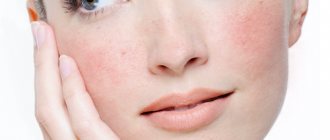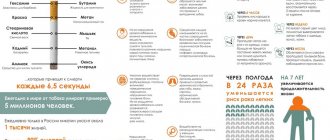Climate change, along with other natural and anthropogenic factors, has a wide range of impacts on human health and disease. Some existing health threats will intensify and new health threats will emerge. Not all people are equally at risk. Important factors include age, economic resources and location.
Public health may be affected by disruption of physical, biological and environmental systems, including disturbances occurring locally and elsewhere.
The health impacts of climate change include increases in respiratory and cardiovascular diseases, injuries and premature death from extreme weather events, changes in the prevalence and geographic distribution of food- and water-borne diseases, infectious diseases, and threats to mental health.
At an enterprise, even the most insignificant factor can affect the well-being of employees. Not only climate change, but also the microclimate of the room significantly affects their health. That is why microclimate control at the enterprise is necessary.
General information
Meteopathy or meteosensitivity are terms that are commonly used to describe the state of dependence of the human body on changes in the meteorological situation.
As a result of such changes, the general condition of the body can either improve or worsen. In weather-sensitive people, the body's adaptation to weather changes is impaired. Very often, meteoropathy manifests itself in people with diseases of the nervous and cardiovascular systems. Due to exposure to weather conditions, adaptation mechanisms may weaken, immunity , and chronic diseases may worsen. Similar manifestations in weather-dependent people are observed during sudden changes in meteorological factors. Statistics show that during periods when the weather changes dramatically, the number of emergency calls increases significantly.
Meteopathy is characterized by changes in blood pressure , shortness of breath , deterioration in general health, dizziness , autonomic dysfunction, pain in the composition, etc. However, today in medicine meteodependence is not considered as a separate disease, and unpleasant symptoms associated with weather changes are treated as part of the main diseases .
How meteoropathy manifests itself, and what people prone to meteosensitivity need to do to improve their condition, can be found in this article.
Born to confirm
"So what? - the reader will say. “The author is just showing off - after all, he doesn’t depend on the weather, which means he doesn’t understand our pain!” This is wrong. Weather dependents themselves also do not understand their pain, or rather, they draw false conclusions about where it comes from.
There is a hypothesis that the human brain is not a soulless machine, but rather a bad program code: it developed as it had to, the main thing is that everything always worked, and therefore some functions were built on top of others without the ability to catch bugs (errors). The result was a kind of conglomeration of structures and functions. (In English they call it “kludge,” but we don’t have a single word for this phenomenon.)
If we continue the computer analogy, then the brain is the “hardware”, the “hard” for the “software” - our psyche. And if the material foundation is built so crookedly, then what can we say about the superstructure? It is known, for example, that we are extremely protective of the resources of our nervous system and try not to waste them. As a result, when faced with some task that requires significant mental effort, the psyche of each representative of our species in most cases is much more willing to choose the simplest and most obvious solution. Simply because we automatically strive to save mental resources. As a result, people operate with misconceptions, rather than looking for a logically correct answer to all questions of the universe.
This is how general misconceptions arise. They are often also called cognitive distortions. And one of these distortions is confirmation bias, or in Russian, a tendency to confirm one’s point of view. Whether we like it or not, being right is much more pleasant than being wrong. Therefore, we accept information that confirms our views more readily than its refutation. We tend to forget them or even simply not notice them.
Therefore, those who consider themselves weather-dependent remember moments when, after another attack of pain or high blood pressure, the weather changed, but their memory is driven out of cases when they felt just as bad, but the weather remained the same. Perhaps weather-dependent migraine patients from Taipei, remembering that they were participating in a study, were more likely to pay attention to any headache in winter, because at this time of year the weather is not as pleasant as in summer, and they believed that in bad weather they themselves feel bad, and were looking for confirmation of their views. So it turns out that weather addicts suffer from bad weather, and those who don’t think about it live better.
Of course, all this sounds unpleasant, because it turns out that people are rather short-sighted creatures. This is probably true in some ways.
Pathogenesis
If a person is healthy, in response to changes in weather conditions, compensatory mechanisms appear in the body. When atmospheric pressure changes, the lumen of blood vessels is adjusted; when the oxygen concentration in the air decreases, corresponding changes occur in the functioning of the respiratory system. In cold weather, blood vessels constrict, retaining heat; in hot weather, they expand. As a result, discomfort from the weather is “smoothed out.”
If compensatory mechanisms do not work correctly, meteosensitivity develops. As a result, your health worsens, and sometimes quite serious symptoms appear. A weather-dependent person reacts most strongly to changes in atmospheric pressure, changes in humidity, etc.
The influence of climate on children
Everyone knows that adaptive reactions to changes in climate and weather (acclimatization) in children are more complex and take a long period of time. A growing organism is the most vulnerable in this regard. Changes in geographic latitudes lead to a malfunction in the immune system, and the respiratory system is the first to be affected.
Many protective mechanisms in children are imperfect, and the younger the child, the stronger the reaction to temperature changes, the intensity of solar radiation, changes in humidity, atmospheric pressure and other natural factors. And most often such a “blow” to the body occurs during a long-awaited vacation.
To avoid ending up in a hospital ward instead of a pleasant stay, you should follow a number of recommendations:
- Climate. Seaside resorts with low humidity and temperatures that do not go through the roof are ideal: the northern shores of the Caspian Sea, Anapa, Gelendzhik, Italy, Greece and France.
These are the mildest conditions for acclimatization.
- Timezone. The time difference should not exceed 2 hours. It is especially dangerous when the clock hands are moved much forward - the excitability of the central nervous system increases and hormonal imbalance may develop.
- Duration of the trip. All pediatricians say that it is not worth going for less than 3 weeks. This is fair - at least 5 days will be needed for adaptation, even if it goes unnoticed.
Classification
If you evaluate the severity of symptoms, three degrees of weather dependence are determined:
- Mild (as a rule, it is called meteosensitivity) - a person experiences a slight, subjective malaise.
- Moderate (this condition is called meteodependence) – some symptoms appear, including possible heart rate and blood pressure disturbances, temperature fluctuations, headaches, etc.
- Severe – severe disorders develop, which depend on chronic diseases, age, etc.
In turn, severe disorders can manifest themselves in one or more meteopathic reactions:
- Brain type - headaches, dizziness, noise in the head, etc. appear.
- Cardiac type - shortness of breath, pain in the heart area.
- Mixed type - cardiac and nervous disorders are combined.
- Asthenoneurotic type – there is severe excitability, irritability, sleep problems, and fluctuations in blood pressure.
- Uncertain type - general weakness, muscle pain, and other signs without clear localization are noted.
In addition, experts distinguish two types of this condition, depending on the seasonality of manifestations:
- Seasonal – chronic diseases worsen at certain times of the year.
- Meteopathological manifestations - as a reaction to weather changes.
The effect of solar radiation on immunity
The totality of all the energy coming from the sun is called solar radiation. Ultraviolet radiation is of greatest importance for the body, which, depending on the spectrum, penetrates to different depths into the tissue, having different effects on the body. The influence of ultraviolet radiation is described in more detail in our separate article; we will dwell on the main points that relate to immunity.
Positive influence
- Sunlight is necessary for normal human life - an insufficient number of sunny days leads to a deficiency of serotonin and endorphins and depression, which negatively affects the immune system. Getting enough sunlight improves your mood and stimulates your brain.
- Activates the work of all organs and systems, accelerates blood circulation and metabolism.
- Activates the synthesis of vitamin D in the skin, which is involved in the metabolism of phosphorus and calcium, and a number of other processes.
- Accelerates the treatment of skin diseases such as psoriasis, eczema, acne.
- Has a detrimental effect on pathogenic microorganisms.
- The warmth of the sun warms up and relaxes muscles, relieves soreness.
- Visible sun rays are directly involved in the work of the visual analyzer, providing color vision - they are reflected from various objects, fall on the retina and turn into nerve impulses, which are already analyzed by the brain.
- Synchronizes biorhythms, ensuring alternation of sleep and wakefulness.
Negative Impact
The negative impact is associated with excessive exposure to solar radiation on humans.
- Can lead to sunstroke, a dangerous condition that can be fatal.
- Causes exacerbation of chronic diseases.
- Suppresses the immune system.
- Causes sunburn and photodermatitis.
- Reduces visual acuity.
- Accelerates skin aging and dehydrates it.
- Increases the risk of developing skin cancer and accelerates the progression of existing cancer.
How to avoid negative influence:
- Avoid exposure to open sun between 11 a.m. and 4 p.m.;
- observe the drinking regime: at least 1.5-2 liters of clean water during the day;
- use products with UV protection for the skin both during tanning and during everyday activities, protect the head, body and eyes from direct sunlight: wear wide-brimmed hats, sunglasses, natural clothes in light colors;
- Follow the rules of healthy tanning.
Causes
The factors influencing the formation of weather dependence have not yet been clearly defined. According to the observations of specialists, meteopathy develops in chronic diseases, most often in diseases of the respiratory and cardiovascular systems.
There are a number of conditions and diseases in which meteopathy develops most often:
- Vegetative-vascular dystonia - as a result of such disorders, compensatory reactions do not work correctly, as a result of which vascular tone changes and health deteriorates.
- Chronic diseases - meteopathy is often observed with hypertension , atherosclerosis . The influence of atmospheric pressure on a person leads to disruption of vascular regulation. As a result, the lumen of the blood vessels narrows, which leads to worsening symptoms. Meteopathy is also often observed in people with asthma.
- Migraine - manifests itself as a consequence of excessive susceptibility of scalp receptors under the influence of cold air and strong wind.
- Consequences of diseases of the central nervous system - meteopathy often manifests itself after a head injury, stroke , encephalitis , or clinical death.
- Diseases of the musculoskeletal system - cold affects the human body with arthritis , arthrosis , and previous injuries. The manifestation of unpleasant symptoms in such diseases is provoked by increased and decreased atmospheric pressure and humidity.
- Unbalanced type of NS - easily excitable and emotionally labile people are susceptible to the influence of weather fluctuations. In this case, the reaction to increased or decreased atmospheric pressure, temperature fluctuations, etc. is a consequence of increased excitability of the receptors.
- Old age – aging leads to a deterioration in the performance of adaptive mechanisms.
There is also evidence that weather sensitivity can be inherited.
In addition, it is noted that risk factors for the development of meteosensitivity may include excess weight , menopause , puberty, and pregnancy .
By type of character, choleric people, whose nervous system is unbalanced, as well as melancholic people, are especially prone to weather sensitivity.
Experts who study the influence of weather on humans identify several types of weather conditions that affect human well-being:
- Indifferent - meteorological conditions fluctuate insignificantly, their impact on living organisms is insignificant.
- Tonic – a beneficial effect on a person of such conditions is noted. bronchitis feel better .
- Spastic – observed with a sharp cold snap and a rise in atmospheric pressure. This increases the amount of oxygen in the air. At this time, people may develop headaches, pain in the heart as a result of vasospasm. Blood pressure also increases.
- Hypotensive – noted if the amount of oxygen in the air decreases. As a result, vascular tone decreases. During this period, the general well-being of people with hypertension , since their blood pressure decreases.
- Hypoxic – develops with warming. During this period, the level of oxygen in the air decreases, so people prone to weather sensitivity experience symptoms of oxygen deficiency.
Separately, the impact of magnetic storms on health should be highlighted. So-called unfavorable days can be especially difficult for weather-sensitive people. It has been proven that the influence of a magnetic field on the human body can actually have a negative impact on well-being. Unfavorable days are associated with solar flares, which result in a powerful release of protons and electrons. This, in turn, affects the Earth's magnetic field. During magnetic storms, people's blood viscosity increases, gas exchange worsens, blood pressure rises, and migraines .
The influence of water and soil composition on immunity
A person receives various minerals, macro- and microelements with water and food, the composition of which largely depends on the types of soil: water passes through its layers and is saturated with elements, plants grow on the ground and also receive various components from it. The composition and quantity of chemical elements often changes in a negative direction due to human economic activity.
Positive Impact
- Iodine ensures the normal functioning of the thyroid gland, in particular, the production of iodine-containing hormones that regulate metabolic processes in the body. With iodine deficiency, endemic goiter develops in the body.
- Fluoride increases the density of bone tissue and teeth, and a deficiency of the element causes caries.
- Cobalt is involved in the synthesis and absorption of vitamin B12, while its deficiency leads to a deficiency of this vitamin.
Negative Impact
- Excess fluoride of more than 1.5 mg/l leads to the development of fluorosis: damage to tooth enamel. This situation is typical for soil with mineral deposits, and also occurs during the activities of enterprises producing nitrates, superphosphates, and aluminum.
- Salts of heavy metals, such as zinc, lead, cadmium, mercury, which enter the soil and water with smoke and wastewater from industrial enterprises, accumulate in the body and lead to severe poisoning.
- Radioactive elements. The Chernobyl accident made the greatest contribution to chemical pollution of water and soil. Radon, uranium, thorium, lead, radioactive iodine and other radionuclides emit gamma rays and irradiate humans, and also enter the body with water, food and cause cancer.
- Soil contamination by bacteria, fungi, worm eggs and protozoa leads to the fact that they enter the body through contact, food and air, causing a number of diseases: helminthic infestations, dysentery, viral hepatitis, typhoid fever.
How to avoid negative influence:
- try to buy environmentally friendly products;
- drink purified (filtered) or bottled water, especially when in other countries. If this is not possible, it is allowed to boil tap water (as a temporary solution);
- Wash your hands with soap before eating and food before eating.
Symptoms of weather dependence
Symptoms of weather sensitivity can occur against the background of both normal health and chronic diseases.
Most often, weather-dependent people report the following symptoms:
- Fatigue and weakness.
- Decreased appetite.
- Joint pain.
- Dizziness.
- Migraine.
- Increase and decrease in pressure.
- Noise in the ears, pain in the eyes.
- Palpitations.
- Exacerbation of chronic diseases.
Meteorological sensitivity can appear several hours before sudden weather changes. In general, manifestations largely depend on the general state of health and chronic diseases that a person has.
- People with brain diseases or after traumatic brain injuries experience dizziness, headaches, and concentration problems.
- With heart pathologies, shortness of breath, pain in the heart area, and discomfort in this area are observed.
- In patients with arterial hypertension, signs of VSD are observed, panic attacks and hypertensive crisis .
- In cases of central nervous system disorders, irritability, insomnia , and deterioration of the emotional state are manifested.
- When the musculoskeletal system is damaged, pain appears in the bones and joints.
Other signs of meteosensitivity are also possible.
Negative Impact
High humidity:
- sharply increases the risk of overheating and hypothermia: frostbite of the legs, arms, face and other parts of the body can already occur at a temperature of -5-10 C;
- increases the risk of colds because it weakens the immune system. In addition, excessively humid air is always characterized by a high content of viruses, bacteria and fungal spores;
- leads to deterioration of the condition of people with diseases of bones and joints, lungs;
- coupled with high temperature causes fatigue, irritability and discomfort.
Low humidity:
- leads to drying out of the mucous membranes, which is manifested by pain in the eyes, nosebleeds, nasal congestion, and frequent colds;
- increases the risk of respiratory diseases: mucus, thickening and stagnating in the nose and bronchi, becomes a good environment for the proliferation of viruses, bacteria and the accumulation of allergens;
- leads to disruption of ionic balance, and positively charged ions become predominant in the body;
- worsens the condition of allergy and asthma sufferers.
To prevent the negative impact of this factor on health, you should:
- maintain normal humidity in the room. To track indicators, there are special devices - hygrometers. If the air is dry, it needs to be moistened by ventilation or using a special humidifier, and if there is excessive humidity, it should be slightly dried;
- Regularly ventilate the premises - this contributes to the formation of a healthy environment.
Tests and diagnostics
Specialists of different profiles may periodically suspect manifestations of meteopathies in patients. Initially, a survey and examination of the patient is carried out. The doctor asks about symptoms and when exactly they appear. Attention is focused on blood pressure readings on days of weather fluctuations, and attention is also paid to the manifestation of other symptoms.
It is currently impossible to diagnose meteopathy using instrumental diagnostic methods.
It is important to carry out a differential diagnosis with meteoneurosis , a condition in which neurotic hypersensitivity manifests itself, but there are no objective symptoms.
Disease or not?
If, with the manifestations of weather dependence, a person becomes worse than he was without them, it means that dependence on the weather is a disease. To understand patients and their colleagues, doctors created a list of all currently known diseases and called it the International Classification of Diseases, abbreviated as ICD. It is revised every 10 years, now the tenth edition (ICD-10) is used, and from 2018 a newer, 11th version will enter medical practice. The ICD includes stuttering, deep caries, and coronary heart disease, but neither meteosensitivity, nor weather dependence, nor even meteopathy, which 7 years ago one respected publication for some reason included in a number of official terms, is not there. Considering how many of our compatriots complain that their blood pressure and general health are deteriorating in parallel with the worsening weather, this is strange. What's the matter?
The fact is that scientists have never found clear evidence of the existence of weather dependence. It happens that a person has something in pain when the weather, in his opinion, is deteriorating. But good weather is a subjective concept, and only specific physical parameters can be assessed objectively and quantitatively: air pressure, humidity and temperature. This has been done by many research teams. In general, they all found out that there was no clear connection between the value of any of these variables and a person’s well-being.
Procedures and operations
People prone to weather sensitivity need to adjust their lifestyle. During the period when negative reactions associated with weather conditions appear, you should reduce physical activity and avoid stress. It is recommended to completely avoid alcohol and caffeine. Smoking also has a negative impact on health.
- Those who often experience joint pain when changing weather conditions are advised to avoid freezing and stay home in cold and humid weather.
- People prone to migraines should wear warm hats in windy and cold weather.
- Proper and nutritious nutrition is also important to keep the body in optimal shape.
- In case of severe hypoxic reactions, it is recommended to walk in the fresh air more often.
- For many manifestations, the condition can be improved by breathing exercises. Regular physical exercise or performing a set of simple exercises also helps improve your well-being.
- Sometimes, with meteopathy, massage, a course of therapeutic baths, and physiotherapy are practiced.
A very important point is the weather forecast for weather-sensitive people. Since the well-being of weather-sensitive people directly depends on weather conditions, the weather forecast can become a certain “guide to action” for those who are weather-sensitive. Knowing in advance what the humidity, temperature, pressure will be today in Moscow, Anapa or any other city, a person can adequately make his plans. On many thematic sites you can find out the forecast for Moscow and other cities. Such sites also indicate the geomagnetic situation and other important information for weather-dependent people.
The effect of humidity on health and immunity
Air humidity is formed by microscopic particles of water dissolved in the environment. Humidity directly depends on air temperature: the higher it is, the more moisture is in suspension. Normal indicators are 60-80%. Low humidity less than 55% negatively affects the mucous membranes and skin, which dry out and lose their protective properties. High humidity prevents the normal evaporation of sweat, which is why a person does not tolerate heat well and increases the risk of heat stroke. In addition, with high humidity, sub-zero temperatures are poorly tolerated.
Treatment with folk remedies
To improve your well-being if you are weather dependent, you can use some folk recipes.
- Herbal collections . Decoctions of mint, chamomile, lemon balm, rose hips, etc. have a calming and restorative effect. It is also useful to inhale mint vapors.
- Heather decoction . 1 tbsp. l. heather grass pour 0.5 liters of boiling water. Boil for 5 minutes, then keep the broth in a thermos for three hours. After straining, drink 50 ml twice a day. After two weeks, increase the dose - take 100 ml three times a day.
- Infusion of elecampane . Pour one and a half tablespoons of crushed elecampane root into 0.5 ml of vodka and leave in a dark place for a week. Take 1 tsp. three times a day before meals.
- Baths . You can prepare a pine bath from pine extract. The water temperature should be 5-37 degrees. You need to take a bath for 15 minutes. You can also take baths from marsh cudweed and other herbs.
- Black elderberry juice . It is necessary to squeeze the juice from black elderberry berries and on days when symptoms of weather sensitivity appear, drink it 4-5 times a day, 1 tsp.
- Rosehip decoction with honey . This decoction is recommended to be consumed instead of tea 2-3 times a day.
Effect of magnetic field on immunity
The static geomagnetic field is created by our planet and affects health. The body also has its own magnetic field. The balance of magnetic fields leads to balance in the body and preservation of health. But there are weather-dependent people, and for them geomagnetic storms, which are caused by solar flares, are dangerous to their health.
Positive Impact
- The magnetic field is involved in maintaining daily biorhythms.
- Strengthens the immune system (a decrease in the magnetic field increases the tendency to frequent diseases).
- Improves the permeability of the vascular wall, the delivery of nutrients and oxygen to tissues.
- Improves the functioning of the central nervous system.
- Slows down the growth of tumors, in particular colon cancer.
Negative Impact
Geomagnetic storms that occur 2-4 times a month:
- They disrupt circadian biorhythms, in particular, disrupt the synthesis of hormones that control daily activity and cause insomnia.
- They change the emotional background - cause attacks of anger, depression, even suicidal thoughts.
- Slow down reaction speed and increase the risk of injury. At this time, the number of road accidents, accidents and incidents doubles.
- They interfere with heart function, causing tachycardia and increasing the risk of myocardial infarction (especially 1 day after the start of storms). The vascular system is the most vulnerable: receptors on the walls of blood vessels detect fluctuations in the magnetic field and resonate with them. This leads to a narrowing of the blood vessels in the brain, a slowdown in blood flow, an increase in blood pressure and blood viscosity, and these are the risks of dangerous acute heart diseases.
Some doctors and scientists believe that fluctuations in the magnetic field have a positive effect on biological processes: for many thousands of years, the human internal clock was coordinated with the rhythms of the sun and stars. Those. Magnetic field fluctuations and solar flares are a kind of wind-up for the body and internal clock and keep the body in good shape. But such a positive effect is realized only if the person is completely healthy, and, alas, there are few of them.
How to avoid negative influences during geomagnetic storms:
- take medications for preventive purposes;
- take acetylsalicylic acid preparations to reduce blood clotting;
- take tincture of motherwort or valerian;
- do not overeat, avoid fatty and difficult-to-digest foods, drink still mineral water, vegetable juices;
- Do not wear clothes made of natural fur or 100% synthetics during this period (they attract electricity);
- monitor meteorologists' forecasts: as a rule, they report the approach of a geomagnetic storm 2 days in advance.
Note to weather sensitive people! There are places where magnetic storms and solar activity are especially strong: the upper layers of the atmosphere at an altitude of 9-11 km above the ground (when traveling by plane) and in the north (Scandinavian Peninsula).
Prevention
To reduce the innate effects of meteorological conditions on the body, it is necessary to follow the following rules of prevention:
- Lead an active lifestyle, do physical exercise, and walk outdoors more often.
- Eat rationally.
- Always dress appropriately for the weather and avoid severe hypothermia.
- Monitor the weather forecast and adequately plan your time for periods of magnetic storms and weather changes.
During periods when weather dependence manifests itself, it is important to follow these recommendations:
- Limit stress – both physical and emotional.
- Avoid long journeys and flights.
- Don't overeat.
- Do not drink alcohol or smoke.
- Have dinner 3-4 hours before bedtime.
- Take a gentle contrast shower.
- Take on time the medications prescribed by your doctor to treat the underlying disease.
- If you tend to have high blood pressure, reduce the amount of salt and liquid you consume.
The effect of wind speed on health
The wind we are used to is the movement of air masses, during which the upper and lower layers of air mix, which reduces gas pollution and makes breathing easier. The optimal indicator is 1-4 m/s: with such wind, heat exchange and thermoregulation occur at a physiological level.
Positive influence
- Wind within 1-4 m/s reduces dust and air pollution in megacities, reduces the concentration of harmful chemicals and smog.
- Together with warm weather (20-22 C), it improves the evaporation of moisture from the skin, has a tonic effect on the body, and activates internal reserves;
- At a wind speed of 4-8 m/s, the functioning of the nervous, immune and endocrine systems improves, and the body's resistance to infections improves;
- Reduces the risk of overheating in hot weather.
Negative Impact
- Wind of more than 20 m/s causes difficulty breathing: it affects the mechanoreceptors of the respiratory tract mucosa and causes a reflex narrowing of the vocal cords and bronchi. Increases heat transfer, so the cold is more noticeable in windy weather;
- Causes anxiety and restlessness;
- Increases the risk of colds. Wind, and especially drafts, cause muscle and vascular spasms in a local area of the body, after which inflammation and pain develop and optimal conditions are created for the proliferation of bacteria. It is in this scenario that neuralgia, runny nose, mild colds, exacerbation of chronic rheumatism, radiculitis often develop;
- It dries out the mucous membranes and skin, which impair their protective properties. The skin begins to peel, dries out, cracks, and pathogenic flora easily penetrates microdamages.
How to avoid negative influence:
- avoid drafts;
- dress according to the weather.
In children
Parents often note the impact of weather on infants. Under certain weather conditions, some children become restless, capricious, cry a lot, and have difficulty falling asleep. At the same time, the influence of weather on infants can be noted from birth.
Experts say that not all children are affected by the weather. According to statistics, such manifestations, to one degree or another, are observed in 60% of children, more often in those who live in large cities.
- Children react to air temperature, especially poorly tolerating sudden changes in temperature.
- Increased atmospheric pressure affects the baby's heart and blood vessels, since his blood vessels are still quite weak and poorly permeable.
- Children often feel unwell in windy weather.
- When humidity is low, the baby actively produces sweat, which leads to dehydration.
- High humidity in hot weather can lead to heat stroke, and in cold weather it can lead to dehydration.
Most often, meteopathy occurs in premature babies, as well as in those born during multiple pregnancies or by cesarean section . Also at risk are children who have undergone surgery, have been seriously ill, or those who have experienced significant stress. A recent vaccination can also trigger a reaction to the weather.
To help a child, it is important to be attentive to him and monitor the changes that occur to him. It is important to consult a doctor on time and carry out hardening procedures. Massage and herbal baths are also useful.
You need to take your baby for more walks and, if possible, leave him to sleep in the fresh air.
The effect of air pollution on immunity
Residents of megacities breathe air polluted by exhaust particles, emissions from factories and enterprises, coal combustion products, and dust. Together, these substances create a dangerous aerosol in the air, which increases the risk of developing coronary artery disease, thrombosis, bronchial asthma and other allergic diseases, inflammatory processes of the mucous membranes of the respiratory tract and cancer. A particular health hazard is posed by smog - a fog of harmful chemical particles that “hangs” over large cities in weather without wind.
The air we breathe contains positively and negatively charged ions, the percentage of which depends on the time of year, the purity of the atmosphere, atmospheric pressure and other factors. Positively charged particles negatively affect humans, causing headaches, fatigue, general malaise and increasing the risk of heart attack. Negatively charged ions accelerate wound healing, improve mood and well-being.
Positive Impact
Air with naturally occurring impurities has a positive effect on health.
- Sea salts. The air on the sea coast is characterized by high humidity and a special composition: it is saturated with salts and minerals from sea water. This air environment has a beneficial effect on the bronchi and lungs, reducing the likelihood of croup and exacerbation of bronchial asthma.
- Some phytoncides, which are released by coniferous trees (young pines, spruce, thuja, fir), as well as poplar and birch, have a detrimental effect on bacteria and fungi and stop their growth.
- Negatively charged ions. There are especially many of them in the air after a thunderstorm, as well as near mountain waterfalls and on the banks of reservoirs. Ions with a negative charge accelerate the recovery of the body after infections and injuries, normalize the condition of the mucous membranes lining the respiratory tract, and have a positive effect on the central nervous system.
Bad influence
- Carbon and nitrogen monoxide causes oxygen starvation, leading to malaise and headaches. The main contribution to the formation of these compounds comes from motor vehicles and emissions from industrial enterprises.
- Sulfur dioxide is a compound that irritates the mucous membranes of the respiratory tract and eyes and reduces their protective properties. Causes conjunctivitis, bronchitis, heart and vascular diseases. It is actively formed during the combustion of coal at thermal power plants and enters the air with industrial emissions.
- Soot is a carcinogen. Its particles less than 5 microns settle in the alveoli and are no longer removed from there, causing lung diseases. Formed by the combustion of rubber, plastics, and hydrocarbons.
How to avoid negative influence:
- use high-quality, certified indoor air purifiers and ionizers, not forgetting to change filters in a timely manner;
- carry out scheduled replacement of filters in air conditioners;
- if possible, take walks more often in parks remote from the highways or outside the city;
- undergo speleotherapy sessions with a course of 10 procedures 2 times a year, especially for people suffering from allergic diseases of the nervous and respiratory systems;
- Regularly ventilate living areas.
Diet
Diet for migraines
- Efficacy: therapeutic effect after 3 weeks
- Timing: constantly
- Cost of products: 1400-1500 rubles per week
Diet to boost immunity
- Efficacy: therapeutic effect after 3 weeks
- Terms: 1-3 months or more
- Cost of products: 1600-1800 rubles. in Week
With meteopathy, it is important to pay attention to the formation of a proper diet.
- It is important to exclude coffee, strong tea, and alcohol from your diet. If your blood pressure is low, it is recommended to drink coffee in small quantities.
- On days when meteosensitivity manifests itself, fried, smoked, and fatty foods should be excluded from the menu. It is recommended to avoid animal fats.
- It is not recommended to eat fast food, sweets, and baked goods.
- It is important to give up alcohol.
It is recommended to include in the diet:
- Seafood, fish.
- Eggs.
- Cereals with a lot of fiber (buckwheat, quinoa, etc.).
- Greenery.
- Honey.
- Vegetables and fruits.
- Green tea, herbal infusions.
How to reduce the negative impact of climatic factors on immunity
The influence of a combination of climatic factors affects the well-being of different people in different ways. In the body of relatively healthy people, when the weather changes, the restructuring of physiological processes to the changed conditions occurs in a timely manner. In people with chronic diseases, the elderly and those who are weather-sensitive, adaptive reactions are weakened, so the body reacts to climate change. However, weather dependence, even in its extreme manifestations, is not a disease, but requires increased attention to oneself and one’s health.
To reduce weather dependence and improve adaptive reactions to changing weather conditions, it is recommended:
- exercise regularly, at least 2-3 times a week, while reducing significant physical activity;
- spend more time outdoors in “clean” areas: in the forest, park;
- harden yourself by choosing the optimal method in accordance with your state of health;
- periodically take vitamin and mineral complexes (vitamins A, E, C are especially important) or monitor the vitamin and mineral content of food;
- get enough sleep, spending at least 7 hours a day;
- take a course of general massage once every six months;
- take soothing herbal medicines to reduce the excitability of the central nervous system (mint, lemon balm) or inhalation with mint and lavender, and in case of loss of strength - tinctures of eleutherococcus, lemongrass or ginseng;
- give up alcohol and smoking, limit coffee and strong tea, replace them with herbal teas or high-quality green teas with honey;
- include in the menu dishes from seaweed, fish, beans, lentils, beets, cranberries. 30 minutes before meals, it is recommended to drink freshly squeezed vegetable and fruit juices, clean water with the addition of lemon juice.
However, these measures do not always bring relief, and people have to change their place of residence or move to a different climate zone.
Author:
Sabuk Tatyana Leonidovna hygienist, epidemiologist
Circadian rhythms and biorhythms
Rhythmic changes in the natural environment and the energy dynamics of metabolic processes led to the fact that man, in the course of evolution, was able to adapt to a certain rhythm of life. Today's science knows a large number of biorhythms. Biorhythms, or biological rhythms, are cyclic fluctuations in the intensity of the nature of biological processes and phenomena.
Some biological rhythms are relatively independent (for example, the frequency of heart contraction, breathing), others are associated with the body’s adaptation to geophysical cycles - daily (for example, fluctuations in the intensity of cell division), tidal (for example, biological processes in organisms associated with the level of sea tide), annual
New sciences have emerged that study biorhythms - chronodiagnostics, chronotherapy, chronopharmology. Knowledge of these sciences is required in order to determine the time of taking a particular medicine. After all, as knowledge of biological rhythms shows, the effectiveness of treatment depends on the time of taking medications, to the point that the actions can be the opposite.
Experts have also proven that detection of the disease at an early stage can be determined by changes in circadian rhythms. Therefore, the next time you take the medicine, carefully read the instructions, which will tell you when to take it.
Climate and disease spread
Many infectious diseases spread only in countries with certain climates. For example, malaria, sleeping sickness, yellow fever and Ebola are common in tropical countries.
Mosquitoes are carriers of malaria and other dangerous diseases
Also, many parasites, such as filariasis, live mainly in hot countries. On the other hand, in countries with cold climates, the prevalence of acute respiratory viral infections and cancer is higher, and vitamin deficiency is more common.
Normal atmospheric pressure for humans. Atmospheric pressure and temperature
The optimal temperature for a person in a room is no higher than +18. This is especially true in the bedroom.
How does the mutual influence of atmospheric pressure and oxygen develop?
In the event of an increase in air temperature and a simultaneous decrease in atmospheric pressure, people with cardiovascular and respiratory diseases suffer.
If the temperature decreases and the atmospheric pressure increases, it becomes worse for hypertensive patients, asthmatics and those who have problems with the stomach and genitourinary system.
In the event of a sharp and repeated temperature fluctuation, the body produces an unacceptably large amount of histamine, the main trigger of allergies.
Good to know
Now you know what normal atmospheric pressure is for a person. This is 760 mmHg, but the barometer records such indicators very rarely.
It is also important to remember that the change in atmospheric pressure with altitude (at the same time it rapidly decreases) occurs quite sharply. It is precisely because of this difference that a person climbing a mountain very quickly can lose consciousness.
>
In Russia, atmospheric pressure is measured in mmHg. But the international system accepts pascals as a unit of measurement. In this case, normal atmospheric pressure in pascals will be equal to 100 kPa. If we convert our 760 mmHg. in pascals, then the normal atmospheric pressure in pascals for our country will be 101.3 kPa.
Weather-dependent people are more often than others interested in what atmospheric pressure is considered normal for a person. The weight of the air mass is so great that the human body can withstand a load of over 15 tons. Compensation, which is carried out by the pressure of internal organs, helps not to feel such a load. When, due to problems in the body, the adaptation system cannot cope, a weather-dependent person becomes a slave to the weather disaster. The intensity of symptoms depends on how low or high your blood pressure is.
Features of the economy and economy of countries depending on climate
Climate determines not only the overall development of states, but also their economic specialization. Tropical countries with a maritime climate make money from tourism and agriculture. At the same time, many agricultural products (coffee, tea, bananas) require special climatic conditions, which forces states to import them.
Coffee harvest
In colder countries, the electricity and fuel costs associated with space heating are high. Also, the walls of houses have to be made thicker so that they retain heat better. On the other hand, in hot countries the costs of air conditioning are high.

